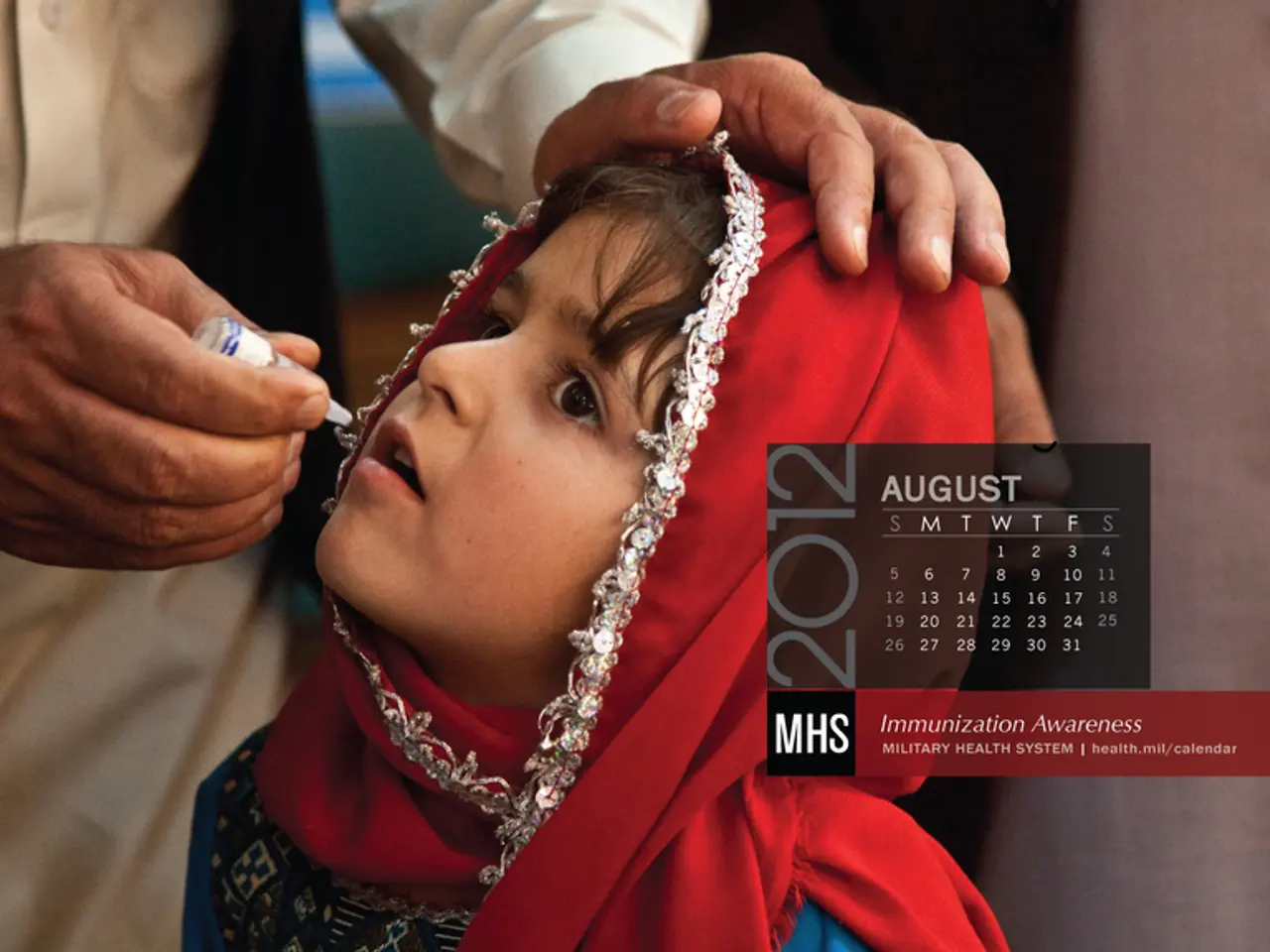Vaccination Campaign Remains Unsuccessful Lacking Public Confidence
In the ongoing fight against the COVID-19 pandemic, communities of color are facing unique challenges in trusting the government and pharmaceutical companies, leading to vaccine hesitancy and unequal distribution.
Thousands of vaccine appointments remain unfilled in the Bronx, New York City, where a mass vaccination center was announced to combat the area's high positivity rate and high asthma rates. Similarly, in Chicago's Little Village, a coronavirus hotspot, the community has received 20 percent fewer vaccinations than wealthier neighborhoods.
A study published last week from the University of Houston found that a third of Texans are likely to refuse the COVID-19 vaccine outright. This figure is mirrored by a survey in Texas, where more than half of people who say they are certain or likely to refuse the vaccine cited a lack of trust in the government and pharmaceutical companies.
The lack of trust in the medical community is not unfounded. History has given communities of color little reason to trust, with instances of unethical medical experimentation on African Americans and ongoing systemic racism that puts Black, Latinx, Indigenous, and low-income communities at increased risk of air pollution exposure.
To address this issue, it's crucial to combat misinformation and provide consistent, accurate information. Clear, accurate, and culturally tailored communication helps build trust and encourages vaccine acceptance. Personal stories and endorsements from trusted community members and local leaders can also facilitate vaccine uptake more effectively than top-down messaging alone.
Moreover, vaccine outreach efforts must recognize the broader social determinants of health, such as systemic racism and environmental injustices, to validate community concerns and demonstrate commitment beyond just vaccination. Separating public health efforts from politicization and government distrust is also essential in building trust among marginalized groups.
Building independent, community-based vaccination programs may reduce mistrust linked to government entities. Medical and health professionals need to listen to communities of color to build trust and ensure this doesn't happen again in the future.
As the number of deaths from the coronavirus approaches 464,000 in the U.S., it's clear that addressing vaccine hesitancy and ensuring equal distribution among all communities is a critical step in the fight against the pandemic.
[1] - "Building Trust in COVID-19 Vaccines: Strategies for Addressing Vaccine Hesitancy in Communities of Color" - University of Pennsylvania [3] - "Racial and Ethnic Disparities in COVID-19 Vaccine Distribution" - RAND Corporation
- Environmental injustices cannot be ignored in discussions about vaccine outreach and trust, as communities of color often face higher rates of air pollution exposure.
- In the magazine's latest issue, an in-depth analysis of the racial and ethnic disparities in COVID-19 vaccine distribution is explored.
- A Greenpeace supplement in the newsletter highlights the importance of environmental justice in workplace-wellness and its impact on chronic diseases like cancer and respiratory conditions.
- A survey in the community found that digestive-health and eye-health concerns were among the top priorities for local residents.
- A local art exhibition sheds light on the issue of environmental justice and its connection to health outcomes, encouraging conversations about climate change and its implications.
- On social media, various influencers are using their platforms to debunk myths and share accurate information about vaccines, promoting mental-health and overall health-and-wellness.
- A new therapy for autoimmune disorders is making waves in the medical community, with hopes of changing the game for patients living with these conditions.
- Fitness and exercise facilities in low-income communities are offering free memberships and virtual classes to promote wellness and combat health disparities.
- The impact of cbd oil on neurological disorders is undergoing rigorous study, with promising results for patients suffering from epilepsy, anxiety, and depression.
- A study on the effects of nutritional supplements on hearing health is making headlines, as researchers explore the potential benefits for people with chronic conditions.
- A mental-health awareness campaign is being launched in schools to address the increasing rates of anxiety and depression among students, especially during the pandemic.
- Raising awareness about sexual-health issues is crucial for reducing sexually transmitted infections, such as HIV and HPV, among marginalized communities.
- SKIN CARE businesses are donating products to shelters and homeless centers, prioritizing skin-care needs for the most vulnerable populations.
- A local policy advocating for stricter car emissions standards has sparked debate, with some arguments citing the potential positive impact on air quality and public health.
- A book club focused on discussions about racism, climate change, and environmental justice is gaining popularity in the community, empowering readers to take action.
- A new Medicare policy is addressing the needs of patients with medical-conditions and chronic diseases by providing expanded coverage for therapies-and-treatments.
- Political leaders are being urged to prioritize mental-health funding in the next budget to ensure access to resources for those suffering from mental-health issues.
- Celebrities are using their platforms to advocate for men's health, raising awareness about prostate cancer and urging men to prioritize their health.
- A public service announcement addressing the impact of chronic diseases such as diabetes and hypertension on skin-conditions is airing on television, emphasizing the importance of prevention and management.
- A college program is offering scholarships for students pursuing degrees in environmental science, hoping to create a new generation of advocates for environmental justice.
- In response to community concerns, a municipality has adopted a new policy for consultations on urban planning, prioritizing the input of residents and addressing issues of social equity in urban development.
- A report on Medicaid policy changes has been published, focusing on the need for increased funding and improved access to care for patients with diabetes and cardiovascular health.
- An investigation into the neurological effects of war-and-conflicts on soldiers and civilians is being featured in entertainment media, sparking discussions and raising awareness.
- A new study on the impact of social media on migration patterns is revealing insights into how people make decisions about moving, potentially informing future policies on welcoming immigrants and refugees.




